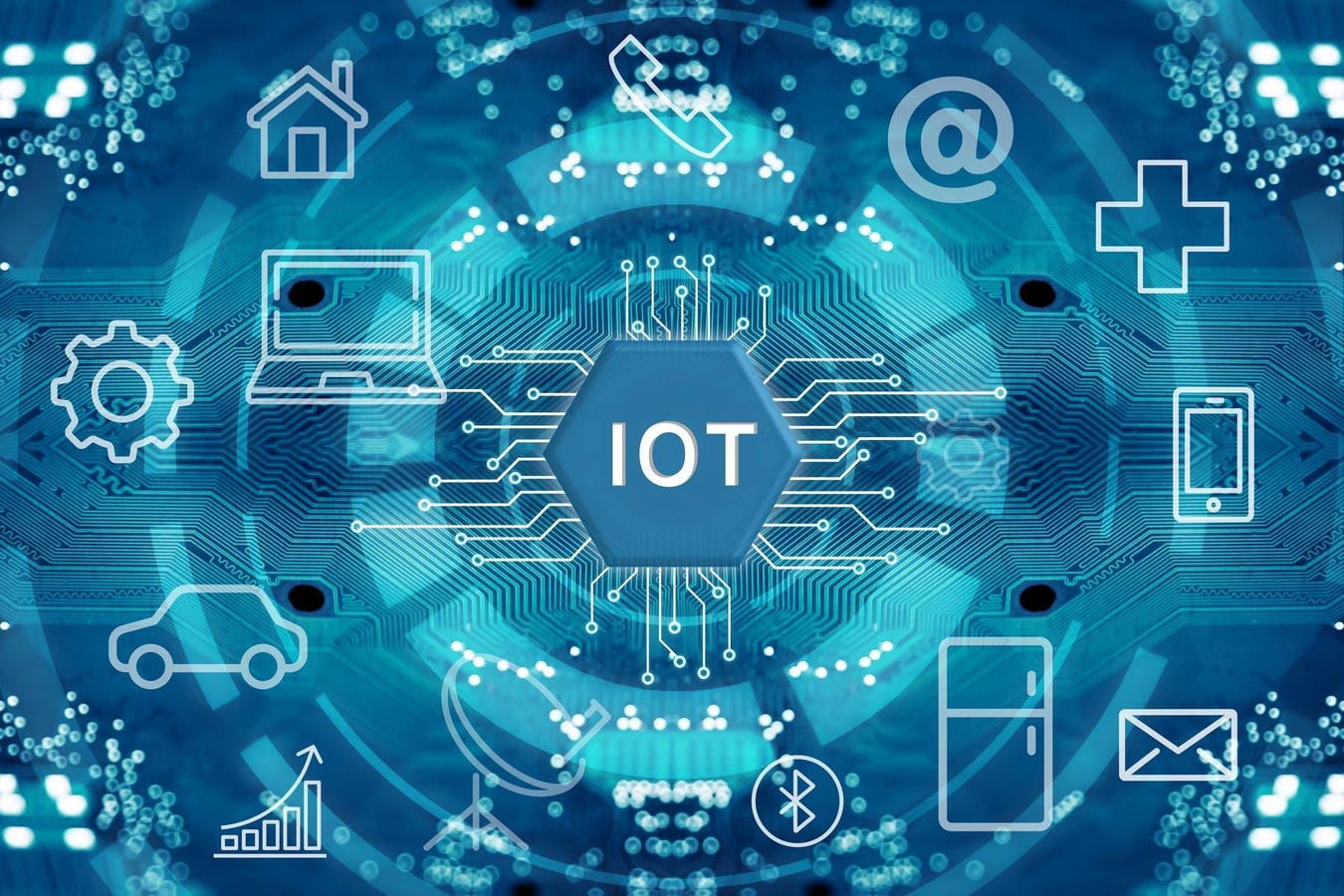
What is the Internet of Things (IoT)? Imagine a world where your fridge orders groceries, your thermostat adjusts itself, and your car schedules its own maintenance. The Internet of Things (IoT) makes this possible by connecting everyday devices to the internet, allowing them to communicate and perform tasks without human intervention. IoT transforms how we live, work, and play by creating a network of smart devices that collect and share data. From smart homes to industrial automation, IoT is revolutionizing various sectors. Ready to dive into 32 fascinating facts about this game-changing technology? Let's get started!
What is the Internet of Things (IoT)?
The Internet of Things (IoT) refers to the network of physical objects embedded with sensors, software, and other technologies to connect and exchange data with other devices and systems over the internet. These objects range from ordinary household items to sophisticated industrial tools.
- The term "Internet of Things" was coined by Kevin Ashton in 1999.
- IoT devices can include anything from smart home appliances to wearable fitness trackers.
- By 2025, it's estimated there will be over 75 billion IoT devices worldwide.
How IoT Works
Understanding how IoT functions can help grasp its vast potential. IoT devices collect data, share it via the internet, and sometimes act on the data they receive.
- IoT devices use sensors to gather data from their environment.
- Data collected by IoT devices is often sent to cloud-based servers for processing.
- Many IoT devices can communicate with each other without human intervention, known as machine-to-machine (M2M) communication.
Applications of IoT
IoT has numerous applications across various industries, making everyday life more convenient and efficient.
- Smart homes use IoT to control lighting, heating, and security systems remotely.
- In healthcare, IoT devices monitor patient vitals and send alerts to doctors.
- IoT in agriculture helps farmers monitor soil moisture and crop health.
- Smart cities use IoT to manage traffic flow and reduce energy consumption.
Benefits of IoT
The advantages of IoT are vast, impacting both personal and professional realms.
- IoT can lead to significant cost savings by automating processes and improving efficiency.
- Enhanced data collection through IoT can lead to better decision-making.
- IoT improves safety by enabling real-time monitoring and alerts.
Challenges of IoT
Despite its benefits, IoT also presents several challenges that need addressing.
- Security is a major concern, as IoT devices can be vulnerable to hacking.
- Privacy issues arise from the vast amount of data IoT devices collect.
- Interoperability between different IoT devices and platforms can be problematic.
- The sheer volume of data generated by IoT devices can overwhelm existing infrastructure.
Future of IoT
The future of IoT looks promising, with advancements expected to revolutionize various sectors.
- 5G technology will enhance IoT by providing faster and more reliable connections.
- Artificial Intelligence (AI) integration will make IoT devices smarter and more autonomous.
- IoT will play a crucial role in the development of smart cities, improving urban living conditions.
IoT in Everyday Life
IoT is becoming increasingly integrated into daily routines, making life more convenient and connected.
- Smart thermostats learn your schedule and adjust temperatures accordingly.
- Wearable fitness trackers monitor physical activity and health metrics.
- Smart refrigerators can notify you when you're running low on groceries.
- IoT-enabled cars can provide real-time traffic updates and route suggestions.
Industrial IoT (IIoT)
Industrial IoT (IIoT) focuses on using IoT technology in manufacturing and industrial processes.
- IIoT can predict equipment failures before they happen, reducing downtime.
- Smart factories use IIoT to optimize production processes and increase efficiency.
- IIoT helps in monitoring and managing supply chains more effectively.
Environmental Impact of IoT
IoT can also contribute to environmental sustainability by optimizing resource use and reducing waste.
- Smart grids use IoT to balance energy supply and demand, reducing waste.
- IoT-enabled water management systems can detect leaks and optimize usage.
- Environmental sensors monitor air quality and pollution levels in real-time.
IoT and Data Analytics
Data collected by IoT devices is invaluable for analytics, providing insights that drive innovation.
- IoT data analytics can help businesses understand customer behavior and preferences.
- Predictive analytics using IoT data can forecast trends and improve decision-making.
The Future of IoT
The Internet of Things (IoT) is changing how we live. From smart homes to connected cars, IoT devices are everywhere. They make our lives easier by automating tasks and providing real-time information. But with these benefits come challenges like security risks and privacy concerns. As more devices connect to the internet, the need for robust security measures grows.
Businesses are also leveraging IoT to improve operations and customer experiences. From supply chain management to personalized marketing, the possibilities are endless. However, it's crucial to stay informed about the latest trends and technologies to make the most of IoT.
In short, IoT is here to stay. It offers numerous benefits but also requires careful consideration of security and privacy. Stay updated, stay secure, and enjoy the conveniences that IoT brings to your daily life.
Was this page helpful?
Our commitment to delivering trustworthy and engaging content is at the heart of what we do. Each fact on our site is contributed by real users like you, bringing a wealth of diverse insights and information. To ensure the highest standards of accuracy and reliability, our dedicated editors meticulously review each submission. This process guarantees that the facts we share are not only fascinating but also credible. Trust in our commitment to quality and authenticity as you explore and learn with us.


